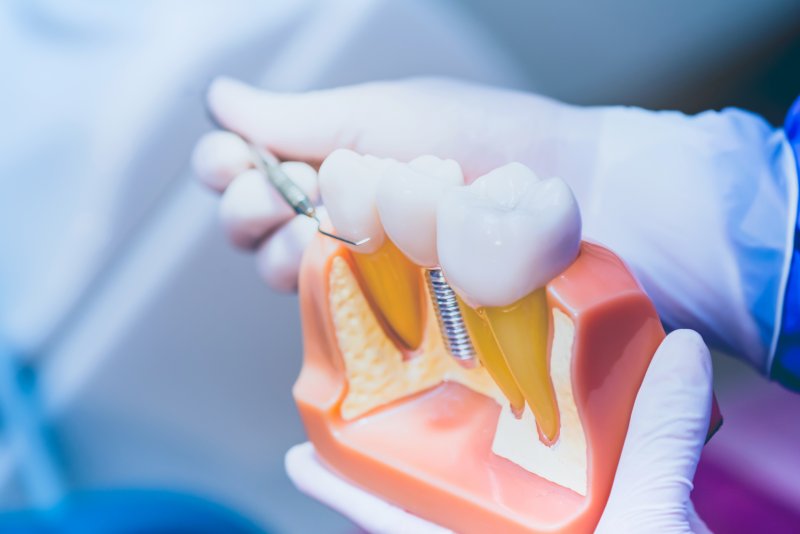
Now that you’ve renewed your missing pearly whites with dental implants, it’s natural to wonder if you could end up struggling with the same oral health issues as your natural teeth. Since decay and gum disease are still potential problems you could face with your tooth replacements, can cavities also be problematic for your metal posts? Read on to learn if your dental implants can be susceptible to this issue and what you can do to maintain your newly rebuilt smile.
How Exactly Do Cavities Develop?
Cavities can develop due to several things, including drinking very acidic beverages, consuming excessive amounts of sugary/starchy foods, poor oral hygiene habits, and genetics. Bacteria can accumulate in your mouth and then spread, resulting in acid byproducts that can end up breaking down your tooth enamel. A tiny hole can then form in the process, which is generally known as a cavity.
Is it Possible for Your Dental Implants to Form Cavities?
Since dental implants are made up of a titanium base and ceramic or porcelain restoration on top, your new pearly whites shouldn’t be able to develop cavities. Your artificial teeth will be non-porous, meaning bacteria will not pass through the material like with your natural enamel.
Even so, you’ll need to keep up with good oral hygiene to preserve your dental implants. One of the main reasons for treatment failure is peri-implantitis—an infection that develops in the gums surrounding the metal posts. If left unchecked, bacteria can attack the connective tissues holding the implants in place, resulting in them becoming loose and/or falling out.
Ways to Prevent Tooth Decay and Peri-Implantitis
While cavities and tooth decay only affect natural teeth, you must take proper care of your dental implants and the rest of your mouth to avoid detrimental issues like gum disease and peri-implantitis. Here are several tips to help ensure a successful tooth-replacement treatment:
- Brush, floss, and rinse with antiseptic mouthwash every day (preferably after meals)
- Keep a diet that minimizes your risk of bacteria and gum disease, such as reducing sugary and starchy foods
- Visit your dentist biannually for checkups and cleanings so they can remove plaque/tartar and address any developing issues before they can worsen over time
Cavities shouldn’t be an issue with your dental implants, but maintaining good oral health should still be one of your top priorities. Talk to your dentist if you have any questions or concerns about your newly rebuilt smile, and they’ll be glad to help keep it strong and healthy for many years to come!
About the Author
Dr. Joshua Hong always strives to provide dental care to help you achieve a perfect smile. He earned his dental degree from the University of the Pacific School of Dentistry in San Francisco and is committed to continuing education to refine his skills and expertise. If you have questions about your dental implants or wish to schedule an appointment, visit his website or call 623-925-8822.
